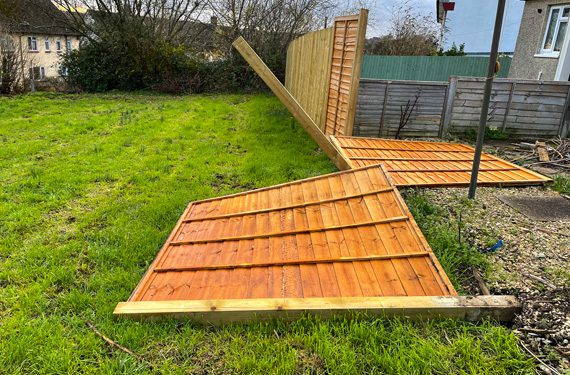All Categories
Featured

When mounting a fencing, picking the appropriate product is essential to stabilizing performance, aesthetic appeals, and budget. Timber, plastic, and light weight aluminum are among the most generally picked secure fencing products, each with its toughness and disadvantages. This guide checks out the benefits and drawbacks of these alternatives to aid you make a notified choice.

Wood Fence. Pros:. All-natural Charm: Wood's timeless beauty can improve any type of property with its warm and traditional look. Personalized: You can paint, stain, or carve timber to fit your design preferences. Inexpensive: Wood fence is originally extra budget-friendly compared to a few other products. Eco Friendly: As a renewable resource, timber is biodegradable and typically taken into consideration green. Disadvantages:. Maintenance-Intensive: Normal securing, painting, or discoloration is required to avoid damages from weather condition and bugs. Prone to Decay: Without correct treatment, timber can rot, warp, or fracture over time. Much shorter Life expectancy: Usually, timber fences last 10-15 years, depending upon the sort of timber and maintenance. Wood is a fantastic alternative for those who value visual appeals and want to purchase regular upkeep to preserve its look and durability.
Vinyl Secure Fencing. Pros:. Low Upkeep: Vinyl needs very little care-- just occasional cleansing with soap and water. Weather Resistant: It does not warp, rot, or surrender to insect damages, making it very durable in different climates. Durability: Vinyl fencings can last 20-30 years with little to no repair work. Design Variety: Available in a large array of textures, styles, and colors, consisting of wood-like looks. Cons:. Greater Initial Expense: Plastic fences are more expensive in advance compared to timber. Susceptability to Cold: In very winter, vinyl can come to be brittle and vulnerable to fracturing. Minimal Repair Service Options: Matching substitute panels can be challenging if damage takes place. Vinyl fence is ideal for home owners seeking a lasting, low-maintenance solution that offers modern flexibility.

Light Weight Aluminum Fence. Pros:. Rust-Proof: Light weight aluminum stands up to deterioration, making it an exceptional option for humid or damp settings. Sturdy: In spite of being lightweight, aluminum is strong and can withstand extreme climate condition. Low Upkeep: It needs very little maintenance, commonly only periodic cleansing. Long Life expectancy: Light weight aluminum fences can last decades without substantial wear and tear. Classy Style: Frequently used for ornamental objectives, aluminum fencing includes a sleek, sophisticated want to homes. Disadvantages:. High Initial Financial investment: Aluminum fences are among the costlier options on the market. Much less Privacy: The open layouts typical with aluminum fencing don't supply much personal privacy. Prone to Damage: While durable, aluminum can dent if struck with sufficient force. Light weight aluminum is an exceptional choice for home owners prioritizing appearances and resilience without needing much upkeep.
Making Your Choice. When deciding between timber, plastic, or aluminum fence, consider your priorities:
Timber fits those that value an all-natural appearance and don't mind placing in upkeep effort. Plastic is the most effective option for those looking for a low-maintenance, weather-resistant solution. Light weight aluminum uses sleek design and resilient durability however might do not have personal privacy. By meticulously analyzing these products' features, you can select a fencing that enhances your residential or commercial property while satisfying your aesthetic and functional needs.
Latest Posts
Explore Special Auto Repair Deals in Chicago at Montclare Auto Repair
Published May 25, 25
1 min read
Explore Special Auto Repair Specials in Chicago at Montclare Auto Repair
Published May 25, 25
1 min read
Join WyHy FCU – Top Benefits for Your Future
Published May 24, 25
1 min read
More
Latest Posts
Explore Special Auto Repair Deals in Chicago at Montclare Auto Repair
Published May 25, 25
1 min read
Explore Special Auto Repair Specials in Chicago at Montclare Auto Repair
Published May 25, 25
1 min read
Join WyHy FCU – Top Benefits for Your Future
Published May 24, 25
1 min read